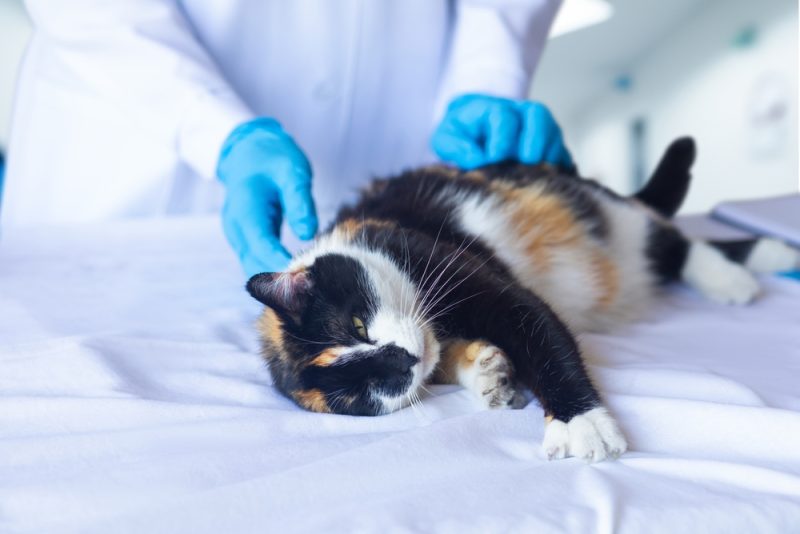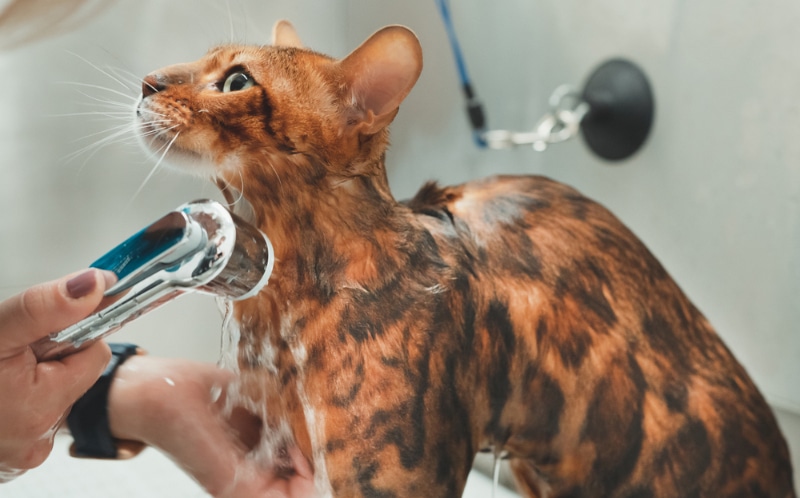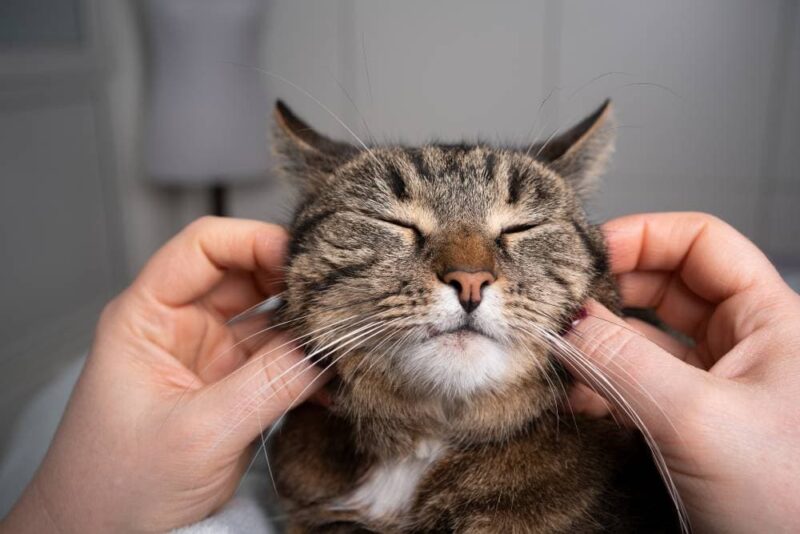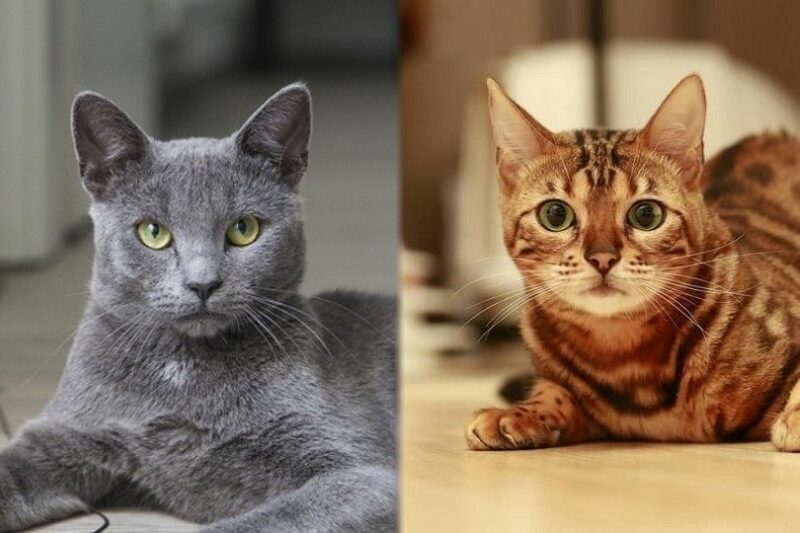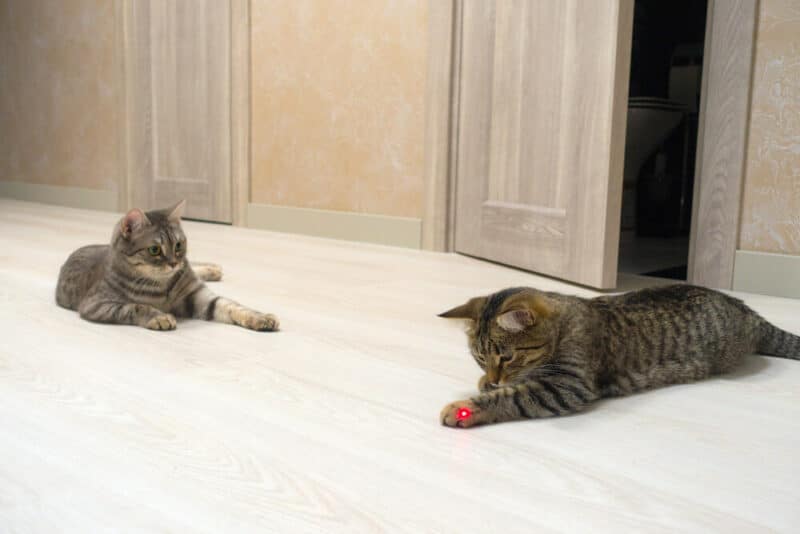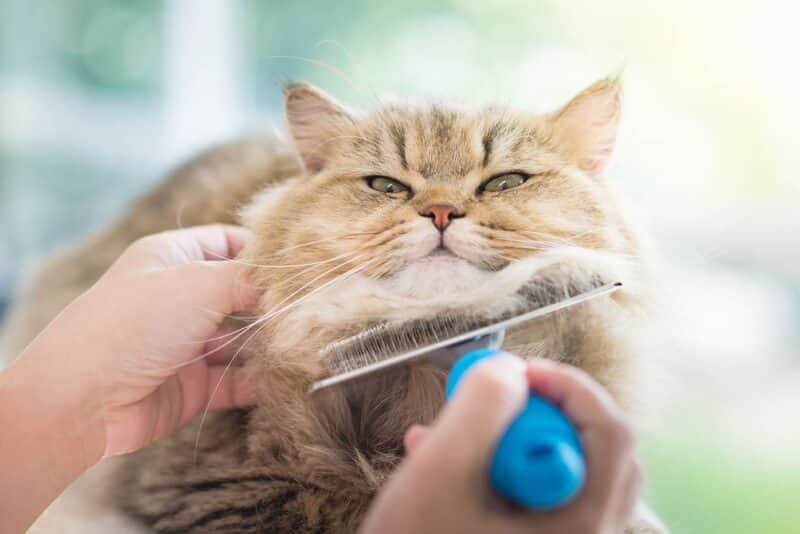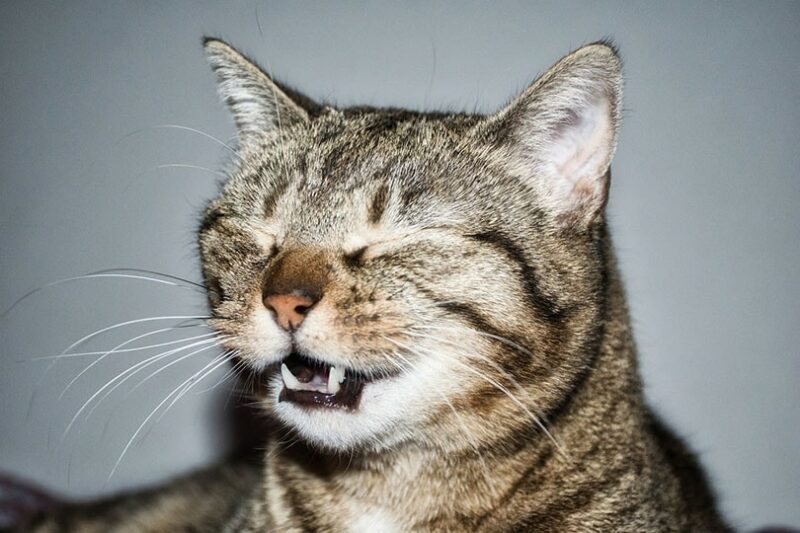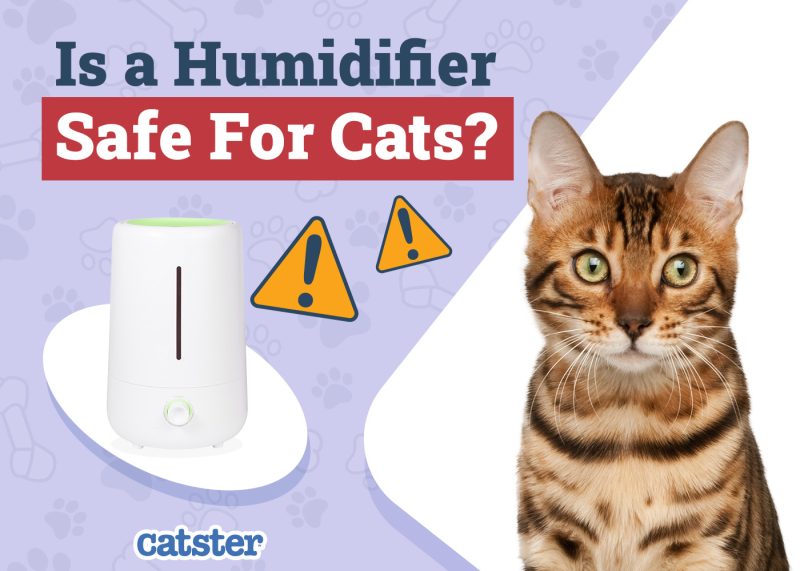In this article
View 2 More +Most of us wish our pets could live forever, but unfortunately, we dream the impossible dream. While no pet owner wants to face saying goodbye to their animal, many have to decide when to euthanize a pet. The decision is never easy, but it can be especially tough if your cat suffers from a health condition that can persist for years, like chronic kidney disease.
While I’ve found from experience, having euthanized three pets and worked for two decades as a veterinary nurse, that there’s no right answer to the question of when to euthanize, there are ways to make the solution clearer. In this article, I’ll go over some ways to help you decide when to euthanize a cat with kidney failure, including a system to help you evaluate your kitty’s quality of life.
What Is Kidney Failure In Cats?
Understanding kidney disease in cats is an integral part of deciding when to euthanize, and I will give a brief outline of the basic pathology of kidney failure. Kidney failure is the end stage of a process that can take weeks to years. Kidney disease is one of the most common medical conditions in older cats. It occurs when the kidneys, whose normal function is to filter the waste products of normal bodily functions from the blood, start to malfunction.
As the kidneys stop filtering the blood effectively, the waste products left behind build up in the body. Eventually, they start to impact other body systems and poison the cat from the inside. You’ll likely notice your cat start drinking and urinating more frequently, along with other signs like vomiting, weight loss, and decreased appetite.
Depending on how badly the kidneys are affected and how they respond to treatment, cats with chronic kidney disease can sometimes live for years after the first diagnosis. In most cases, the organs eventually stop working, and the cat will be in kidney failure.
At that point, it’s only a matter of time before you’ll face a tough decision.
- No appetite
- Excessive drinking and urinating
- Not urinating at all
- Vocalizing
- Altered mental state (e.g., withdrawn, depressed, or confused)
- Sores in the mouth or drooling
- Trouble walking or getting around
If your pet is showing these signs, we suggest you speak to a vet.
If you need to speak with a vet but can't get to one, head over to PangoVet. It's an online service where you can talk to a vet online and get the advice you need for your pet — all at an affordable price!

Once these appear, you’ll need to consider whether it’s time to euthanize, and we’ll talk about the ways to decide that in the next section. Acute (sudden) kidney failure is most commonly seen following the ingestion of a toxin (such as ethylene glycol, aka antifreeze) but can also result from severe dehydration and urinary tract infections.
In the cases of toxin-induced kidney failure, the damage to the organs is often irreversible, and the decision to euthanize may need to be made quite suddenly, whereas kidney damage from an infection, obstruction, or dehydration can often be corrected with aggressive fluid therapy and medical treatment.
The clinical signs of acute kidney failure are often similar to those seen with chronic disease but occur within a period of days or even hours (as with antifreeze toxicity).


When to Euthanize a Cat With Kidney Failure
There is no simple answer to this question, and no one can decide for you. However, I suggest considering two primary concerns as you make your choice: your available resources and your cat’s quality of life.
Available Resources
As mentioned, cats with chronic kidney disease can survive for years with treatment. Even once they enter kidney failure, aggressive treatment may be able to prolong your cat’s life even further. However, the treatments can take a toll on your finances, time, and emotions.
When making decisions about treatment and euthanasia, it’s important, however difficult, to consider the resources you have available. How much money can you afford to spend on vet bills? The treatment of kidney failure may include hospitalization with intravenous (IV) fluids, medications, and sometimes (though rarely) blood transfusions or tube feeding.
Treating a cat with kidney failure can be expensive, but it can also be stressful and time-consuming. Watching your cat get sicker and not knowing when to say goodbye can take a toll on your emotional resources.
- Related Read: Can a Cat Recover From Kidney Failure? Our Vet Explains the Signs, Recovery & Diagnosis
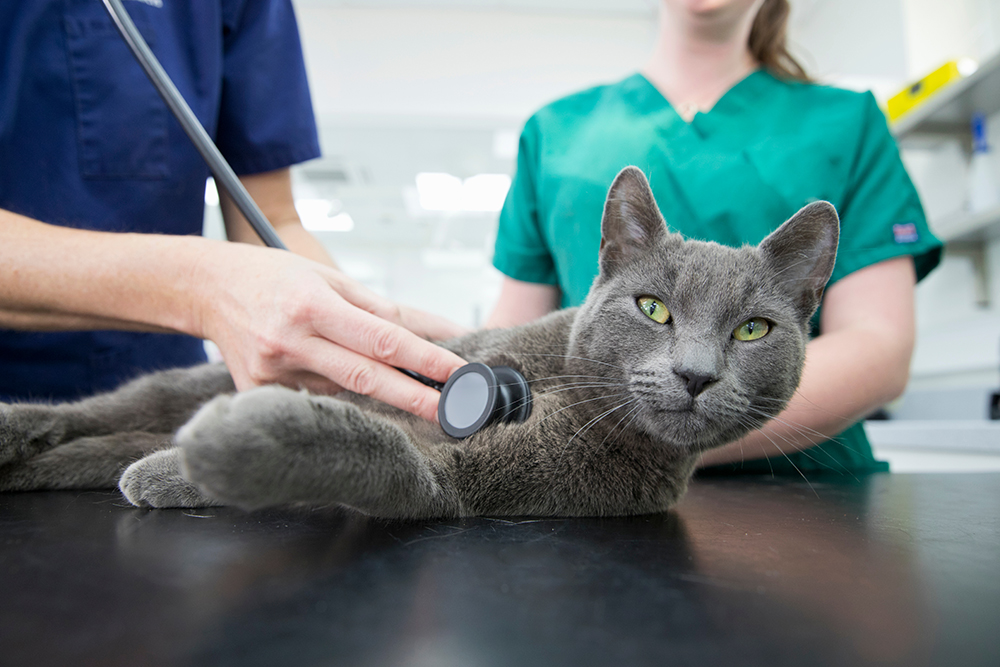
Your Cat’s Quality of Life
Even if you have unlimited resources, your cat’s quality of life should be the most important indicator of when to euthanize. Determining when their quality of life reaches the point of no return will be different for every cat and every person. At its simplest, ask yourself whether your cat is having more good days than bad.
Does your cat still seem relatively happy, interested in interacting with you, eating, and comfortable? If so, your pet may not be experiencing the most severe effects of the disease. Some owners rely exclusively on their knowledge of their pet’s behavior and personality to assess how they’re feeling.
If you prefer a more “data-driven” way to determine your cat’s status, various quality-of-life scales for pets are available. Essentially, the scales ask you to rank your cat’s daily life on a scale of 1-10. For example, is your cat pain-free, clean, still eating, responsive, and able to move around independently?
If the numbers add up to more than half the total, most scales will rank your cat’s quality of life as acceptable. Once they drop lower than half, it’s probably time to talk to your vet about euthanasia.

Can You Let Your Cat With Kidney Failure Die Naturally?
Because choosing to euthanize is so difficult, many of us would prefer that our cats pass away peacefully in their sleep. In some cases, that may happen, but some “natural” deaths can be disturbing to experience. You may find the mental toll of waiting and wondering if you’re making the right choice difficult.
In addition, you don’t want your cat to be in pain simply because you can’t decide whether to euthanize them. Kidney disease can be painful, especially if your kitty develops mouth sores. Ask your vet about pain control options if you’re still not ready to euthanize. Sometimes, by prolonging their lives, we are merely prolonging their suffering.

Conclusion
When deciding when to euthanize a cat with kidney failure, you’ll need to consider your pet’s quality of life, along with the financial, emotional, and time resources you have available to continue care. Your vet and their staff can assist you as you make this difficult decision, but the final choice will ultimately be yours.
Every situation is different; unfortunately, recognizing when the time is right to say goodbye won’t always be easy. I can also say from experience that even if you know euthanizing is the right choice, you’ll probably still second-guess yourself once you’ve made it. These feelings are normal, and pet loss support resources are available to help you navigate them.
Featured Image Credit: Natali _ Mis, Shutterstock
